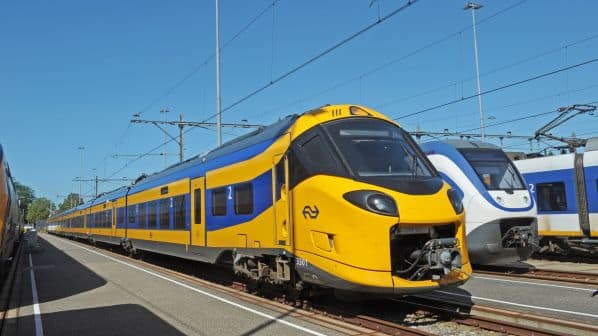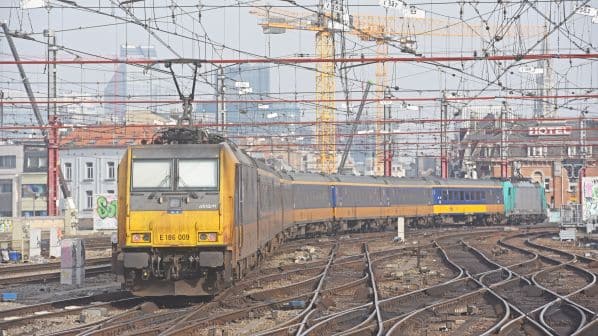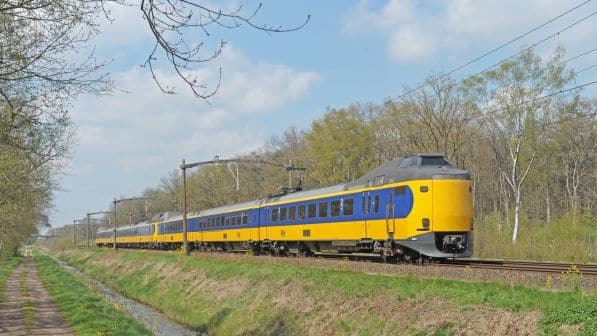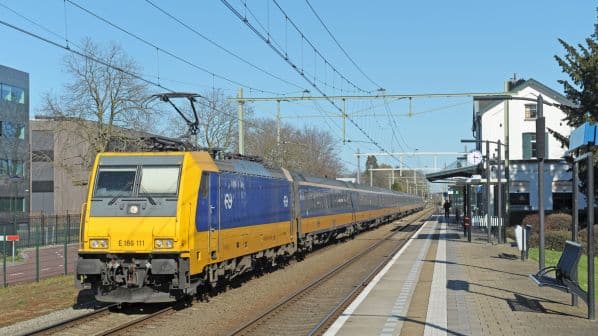THE Dutch government has directly awarded incumbent Netherlands Railways (NS) the Main Line Network (HRN) concession for the period from January 1 2025 to December 24 2033. The contract covers 95% of total rail passenger-km in the Netherlands.
The direct award was made on December 21, shortly before the deadline of December 24 as set by European Union (EU) Regulation 1370/2007 EC that now requires all PSO services to be put out to competitive tender.
Despite the European Commission (EC) starting infringement proceedings and issuing a formal letter of notice stating that the Netherlands is at serious risk of breaching EU law, the outgoing secretary of state at the Ministry of Infrastructure, Ms Vivianne Heijnen, has gone ahead with the direct award.
The EC believes that the direct award constitutes a circumvention of the principle of competitive tendering, and that there is no objective justification for granting the concession over a year before it is due to start on January 1 2025.
“There is no apparent reason why a direct award decision should be taken more than 12 months ahead of the start of operations, considering that the incumbent can switch seamlessly from the old to the new contract, which is of comparable scope,” says European commissioner for transport, Ms Adina Vălean.
The direct award has also been opposed by other passenger operators in the Netherlands, who having established a foothold in the regional market are now keen to challenge the NS monopoly over mainline services.
As members of the Netherlands Federation of Mobility Companies (FMN), Arriva Nederland, Transdev, QBuzz and Keolis have taken legal action in the Dutch courts in a so far unsuccessful attempt to prevent the direct award, and may do so again now that the concession has been granted to NS.
The new HRN concession sets performance targets including service frequencies, rolling stock allocation and requirements to introduce new trains, the provision of passenger information, accessibility, and customer satisfaction.
Each year NS will produce an annual transport plan for the minister of infrastructure to approve, setting out which services will be operated and establishing minimum performance standards. NS will be required to consult with stakeholders such as passenger groups when drawing up the plan.
As well as domestic services, the HRN concession covers cross-border services and requires NS to operate 32 IC trains a day between Brussels and Rotterdam, of which 16 will continue to Amsterdam. These services will be operated in conjunction with Belgian National Railways (SNCB) and will use the HSL-South high-speed line in the Netherlands.
The concession also makes financial provision for a direct IC service between Eindhoven and Aachen in Germany. This will be operated with the ICNGD, a new variant of the Intercity New Generation (ICNG) EMU that Alstom and NS are now developing.
Over the 10-year term of the HRN concession, NS will pay the Ministry of Infrastructure a maximum of €539m, while receiving an annual subsidy of €5.5m and €7.5m for managing the national passenger information system, which is also used by other operators.
The government will also pay €4.5m for additional regional services between Roosendaal and Vlissingen on working days. Despite these subsidies, the basic principle of the HRN concession is that NS will operate train services and execute the concession at its own risk.
The concession will be subject to a mid-term review by the Ministry of Infrastructure and NS in 2029, in order to determine to what extent it is helping to meet the transport policy objectives of the Dutch government.




